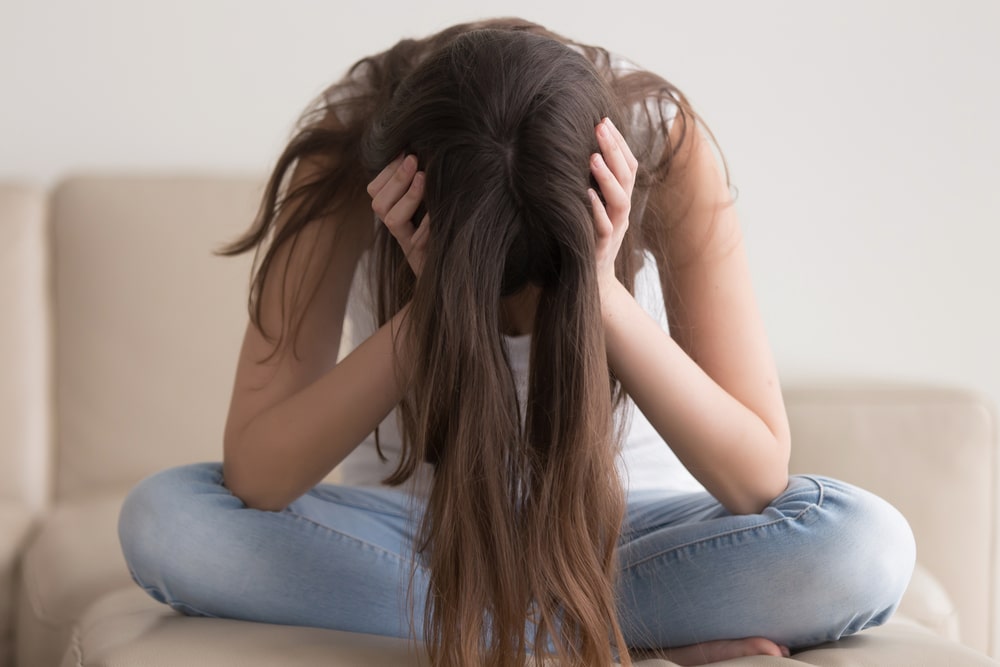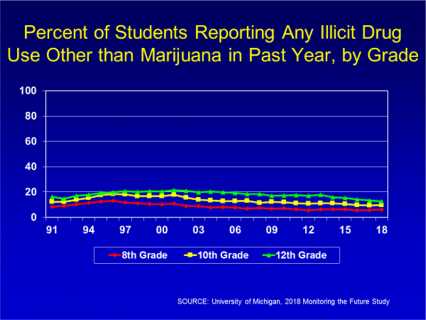Recently, drug and alcohol abuse by teens has dropped to the lowest levels of the last 20 years, but in spite of low levels, teens are still using dangerous substances.
When young people abuse drugs and alcohol, they can suffer serious consequences, including lifelong addictions and death. To fight against teen drug abuse, you need to understand the facts.
What Causes Drug Abuse Among Teens?
In many cases, teens try drugs because they are curious or they want acceptance from their peers. They may start with an alcoholic drink, vaping, or smoking a cigarette at a social gathering.
Several risk factors can exacerbate a teen’s likelihood of abusing drugs or alcohol. Mental health issues including attention deficit hyperactivity disorder (ADHD), learning disabilities, anxiety, depression, and others can also increase a teen’s risk of taking drugs or alcohol.
In that same vein, teens who have experienced trauma also have an increased risk of drug or alcohol abuse.
Although teens drink and take drugs for different reasons, they tend to turn to drugs or alcohol to meet fairly straightforward needs including the following:
- Fitting in with peers — If a teen wants to hang out with a group that uses drugs, they may start just so they don’t feel like an outsider.
- Feeling good — Drugs interact with your brain chemistry to produce pleasurable feelings. Many addictions start because someone is simply trying to feel good.
- Dealing with mental health issues — Teens suffering from depression, anxiety, PTSD, and other mental health issues may turn to drugs to alleviate their symptoms.
- Coping with stress — Teens experience a lot of stress from school and other parts of their lives, and stress plays a significant role in why people turn to drugs and why they relapse after getting addiction help.
- Experimenting — While finding their way in the world, teens are hardwired to want to try new experiences, and sometimes, that can include experimenting with drugs.
Genetic predisposition can also play a significant role in whether or not teens turn to drugs. If teens have family members who are addicted to drugs or alcohol, they may be more likely to do drugs based on both genetic and environmental factors.
Signs and Symptoms of Substance Abuse Amongst Teens
When teens are using drugs or alcohol, they exhibit numerous signs and symptoms. The exact symptoms vary based on the teen, their personal habits, the type of drug, and the extent of the drug or alcohol abuse. If you have a teen child or if you spend time with teens, you should familiarize yourself signs of drug and alcohol abuse.
Teens who abuse drugs may exhibit the following signs and symptoms:
- Lack of motivation
- Apathy
- Low levels of productivity at school, home, and work
- Unexplained weight gain or loss
- Poor personal hygiene
- Disinterest in grooming
- Track marks from injecting drugs such as heroin
- Pock marks on face from picking at skin while coming down from cocaine or amphetamines
- Irritability
- Uncharacteristic disrespect to authority
- Unusual drowsiness, especially after periods of hyperactivity
- Depression
- Other mental health concerns
- Hiding messages or taking sneaky phone calls
- Obvious intoxication such as slurring words or falling over
- Using drug jargon
- Owning drug paraphernalia
One of the first signs of drug abuse is behavioral changes. When teens start using, they often withdraw from the following:
- Sports
- Extracurricular activities
- Family events
- Hobbies or interests that would normally occupy their time
They start to substitute drug use for their normal interests and activities.
In many cases, teens start hanging out with new groups of friends who use drugs or alcohol. Even if they don’t know about the drug use, their families may not approve of the new social groups. Often, parents just instinctively feel like something is wrong with the new crowd.
Many teens violate their curfews or skip school if they are abusing drugs or alcohol. While some of this behavior is completely normal for a healthy teen, drug abusing teens tend to make more excuses about their absences, and they often get angry if confronted about what they were doing.
In fact, as teens become more addicted to drugs or alcohol, they become a lot more likely to have angry, defiant, or even violent reactions to requests from parents or other adults.
Often, teens have these reactions because they feel vulnerable, and they’re trying to protect themselves from scrutiny. But in some cases, teens may react aggressively because they are coming down from certain substances.
Additionally, when drugs are easy to obtain, teens also become more likely to abuse them. For example, in 2003, over 10% of high school seniors reported using vicodin without a prescription in the last year, but as of 2018, that number had dropped to less than 2.5%.
During that same time, the availability of prescription opioids also dropped. In 2010, over 54.2% of high school seniors said that prescription opioids were easy to find, but by 2018, less than a third of seniors said they could easily find this drug.
Substance Abuse Disorder Among Teens Statistics
By the time teens complete high school, 70% of teens have tried alcohol, 50% have tried an illegal drug, 40% have smoked cigarettes, and 20% have used prescription drugs recreationally. Some people dismiss these numbers and assume that some drug or alcohol use is inevitable during the teenage years.
Generally, teens start with recreational use because they want to experiment or they may even be trying to act out against their parents or other authorities. Over time, occasional use turns into regular use, and the teen may change behavior, join a new friend group, or make other changes to their personal life.
As teens use drugs more frequently, the drug use usually becomes problematic. At this point, teens may start using harder drugs. They may get into trouble at school or with the law. They may start lying to cover their drug abuse or deal drugs to support their habit.
However, drug and alcohol abuse while young is a strong indicator of having an addiction as an adult. The majority of people who suffer from substance use disorder as adults, start using substances before they turn 18, and in most people, the disorder is established by the time they are 20. Early intervention is key to disrupting this process.
What is the Most Commonly Used Drug Among Teenagers?
As of 2018, alcohol is the most commonly used drug among teens, but vaping comes in at a close second.
In a nationwide survey of drug use among 8th, 10th, and 12th graders, 17.6% of 8th graders, 32.3% of 10th graders, and 37.3% of 12th graders reported that they had vaped in the last year. The majority of respondents had vaped nicotine, but around 10% of 8th and 12th graders had vaped marijuana.
Close to 40% of seniors, almost 30% of 10th graders, and 10% of 8th graders report using marijuana in the last year. About 5.8% of high school seniors say they use marijuana every day. Aside from marijuana, illicit drug use is at a 20 year low for teens in America.

Based on this survey, 6.1% of 8th graders, 9.6% of 10th graders, and 12.4% of 12th graders report using illicit drugs in the last year. These drugs include heroin, prescription opioids, Ecstasy, MDMA (Molly), methamphetamine, amphetamines, sedatives, ketamine, ritalin, cocaine, inhalants, OxyContin, salvia, sedatives, hallucinogens, tranquilizers, cough medicine, and adderall.
Substance Abuse Programs for Teens
Even if they’re struggling with drug abuse, many teens feel like they don’t need help. As a result, only 10% of the teens who struggle with drug and alcohol abuse actually get treatment services from rehab centers or other places. Often, these kids only get help because they have been forced to get addiction help after getting into legal trouble.
When teens are struggling with drug use and addiction, their families and friends need to step in and urge them to get help. Interventions can be critical in avoiding dire outcomes. If teens feel like they are loved and supported, they tend to become more receptive to getting help.
For some drug addictions, teens need to go through supervised detox so that they can safely get off the drug, and they need to stay in residential treatment centers. In other cases, teens may need counseling and help through outpatient treatment centers.
Because every teen has different needs, effective drug and alcohol treatment starts with an assessment to create a comprehensive treatment plan that addresses all aspects of the teen’s life. In particular, many teens struggle with addiction and mental health problems, and to be effective, their treatment plan needs to address both issues.
At the same time, the staff should be well trained and committed to engaging the teens so they stay in treatment. After leaving treatment centers or rehab centers, teens need support from their family and non-drug using peers. They also need follow up care and help integrating their recovery into their regular life.
If you know a teen who is showing signs and symptoms of drug or alcohol abuse, you need to reach out and get them help. Our rehab centers can offer your teen the help they need to move past their addictions and learn how to enjoy life without drugs or alcohol. To learn more, contact us today.
Source
- https://www.drugabuse.gov/publications/drugfacts/monitoring-future-survey-high-school-youth-trends
- https://www.mayoclinic.org/healthy-lifestyle/tween-and-teen-health/in-depth/teen-drug-abuse/art-20045921
- https://www.drugabuse.gov/publications/principles-adolescent-substance-use-disorder-treatment-research-based-guide/frequently-asked-questions/why-do-adolescents-take-drugs
- https://www.ncbi.nlm.nih.gov/pmc/articles/PMC3257983/#__sec3title


